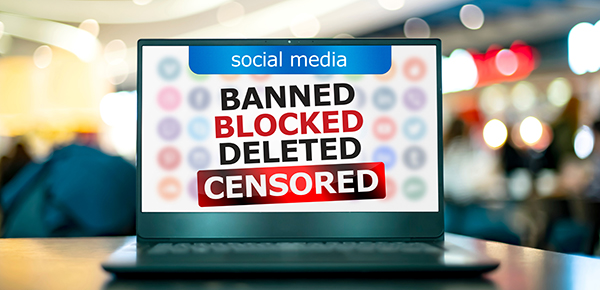
The watchdog organization Judicial Watch has launched a legal offensive against the Office of the Director of National Intelligence (ODNI) for transparency over alleged social media censorship.
The lawsuit, identified as Judicial Watch, Inc. v. Office of the Director of National Intelligence, follows an ignored Freedom of Information Act (FOIA) request made in May.
The lawsuit highlights the ongoing struggle against censorship and an enduring defense of free speech.
Watchdog demands records and communications from the NCTC and FMIC
The goal of the Judicial Watch lawsuit is to demand "records and communications" from the National Counterterrorism Center (NCTC), particularly concerning the Foreign Malign Influence Center (FMIC).
The watchdog is after crucial information such as organizational charts, descriptions of positions, annual budgets, and, particularly, communications with leading social media platforms like Facebook, Meta, Reddit, TikTok, Twitter, YouTube and Instagram regarding "foreign influence operations," "misinformation" and "disinformation." (Related: Supreme Court allows federal government to continue suppressing social media content.)
The lawsuit also seeks insight into the policies, procedures and strategic plans devised by both governmental and non-governmental bodies.
However, the lawsuit isn’t an isolated endeavor by Judicial Watch. It marks only one part of an ongoing saga of challenging entities that are believed to be encroaching on free speech under the pretense of combating misinformation.
We are building the infrastructure of human freedom and empowering people to be informed, healthy and aware. Explore our decentralized, peer-to-peer, uncensorable Brighteon.io free speech platform here. Learn about our free, downloadable generative AI tools at Brighteon.AI. Every purchase at HealthRangerStore.com helps fund our efforts to build and share more tools for empowering humanity with knowledge and abundance.
According to the ODNI website, the NCTC "produces analysis, maintains the authoritative database of known and suspected terrorists, shares information and conducts strategic operational planning."
Meanwhile, the FMIC is organized around three lines of effort:
- Analytic integration
- Mission management
- Partner engagement
The FMIC works closely with the National Intelligence Council (NIC), the National Intelligence Management Council (NIMC) and the agency's partners across the Intelligence Community.
FMIC under the ODNI targets free speech
While short-lived, the divisive formation of a Disinformation Governance Board (DGB) in April 2022, resulted in significant controversy. The advisory board's critics called it a "frontal assault on the First Amendment," a sentiment echoed with the establishment of the FMIC later in September 2022.
The FMIC, housed under the ODNI, allegedly had a mission that was familiar to free speech advocates: analyzing and integrating intelligence concerning "foreign malign influence," along with election security.
The FMIC's proposition for a public-private initiative, which called for "significant monetary and resource investment by the government," was considered a blatant call for an expansive alliance between the government and private sector to police information.
Tom Fitton, Judicial Watch President, condemned the actions of the Biden administration, accusing it of attempting to resurrect "domestic thought police deep inside the heart of America’s spy agencies." Fitton's warning reflects a common fear that governmental bodies, in collaboration with tech giants, are targeting a path to censorship under the guise of "a fight against misinformation."
The Judicial Watch's recent lawsuit against the ODNI is part of a larger narrative, one that sums up the ongoing tension between free speech and the constantly changing landscape of digital communication in a time full of misinformation and foreign influence.
While the battlefront may have shifted to the courtroom, the essence of the struggle remains the same: The defense of the uninhibited flow of ideas in a free society like America.
Visit Censorship.news for more updates about censorship in the U.S. and around the world.
Watch this video on the Select Subcommittee on the Weaponization of the Federal Government.
This video is from the Endgame channel on Brighteon.com.
More related stories:
AMP censors Jeffrey Prather for probing Israeli intelligence blunders.
138 Luminaries sign international declaration demanding the end of censorship.
Sources include:
Please contact us for more information.















